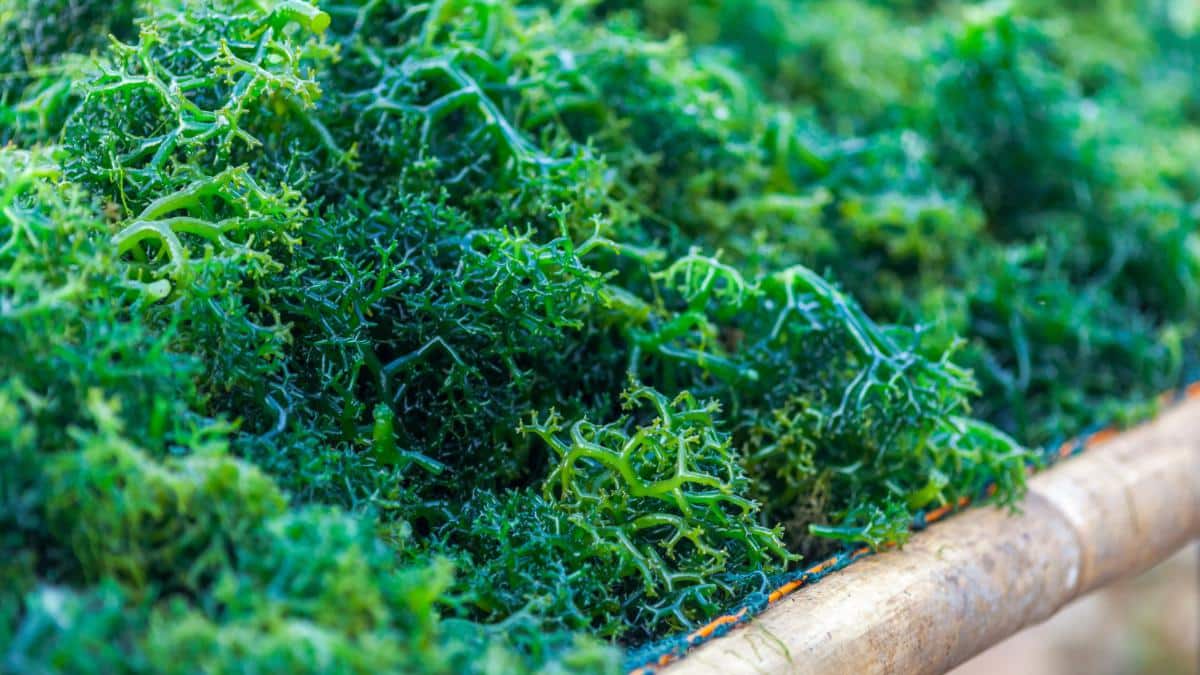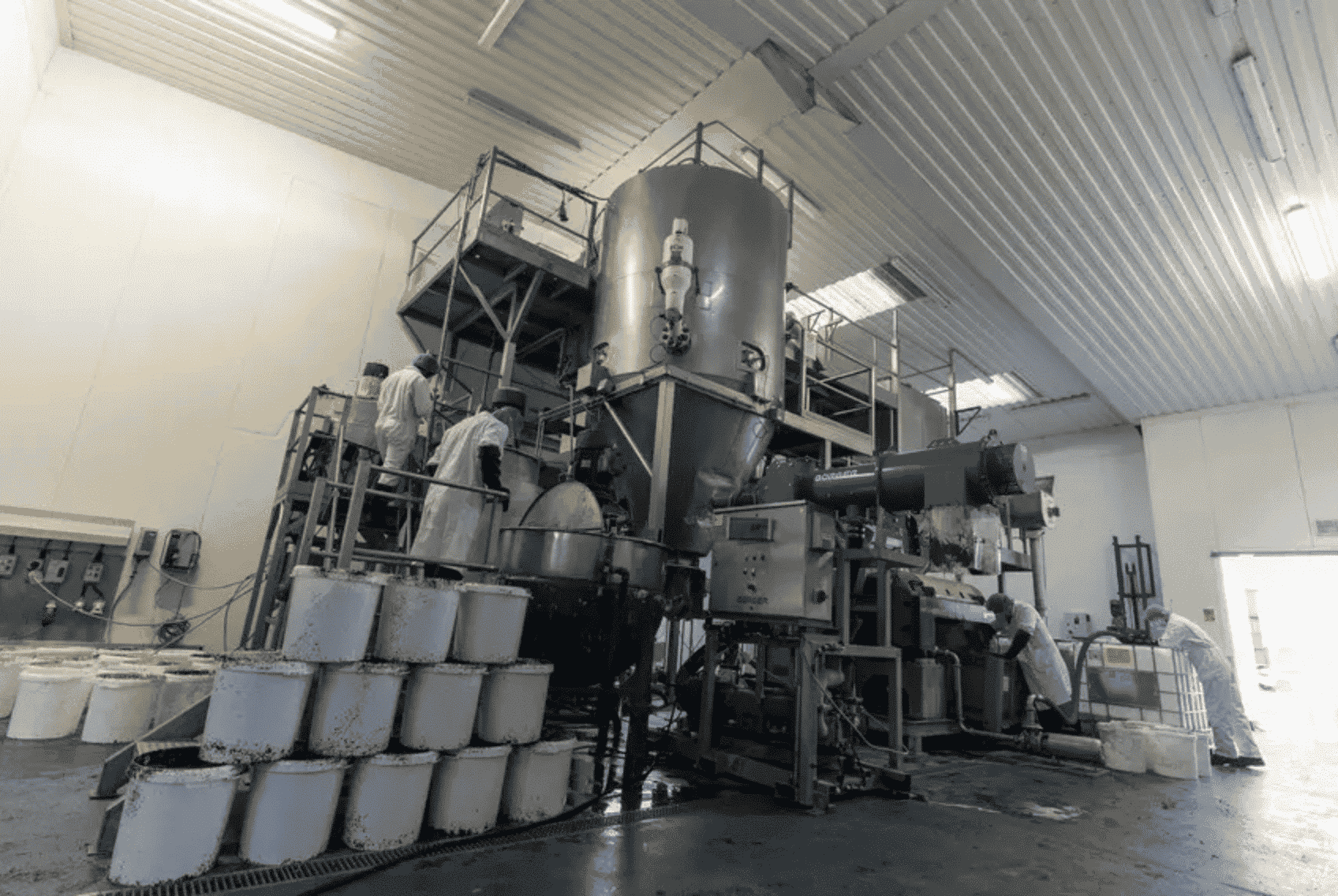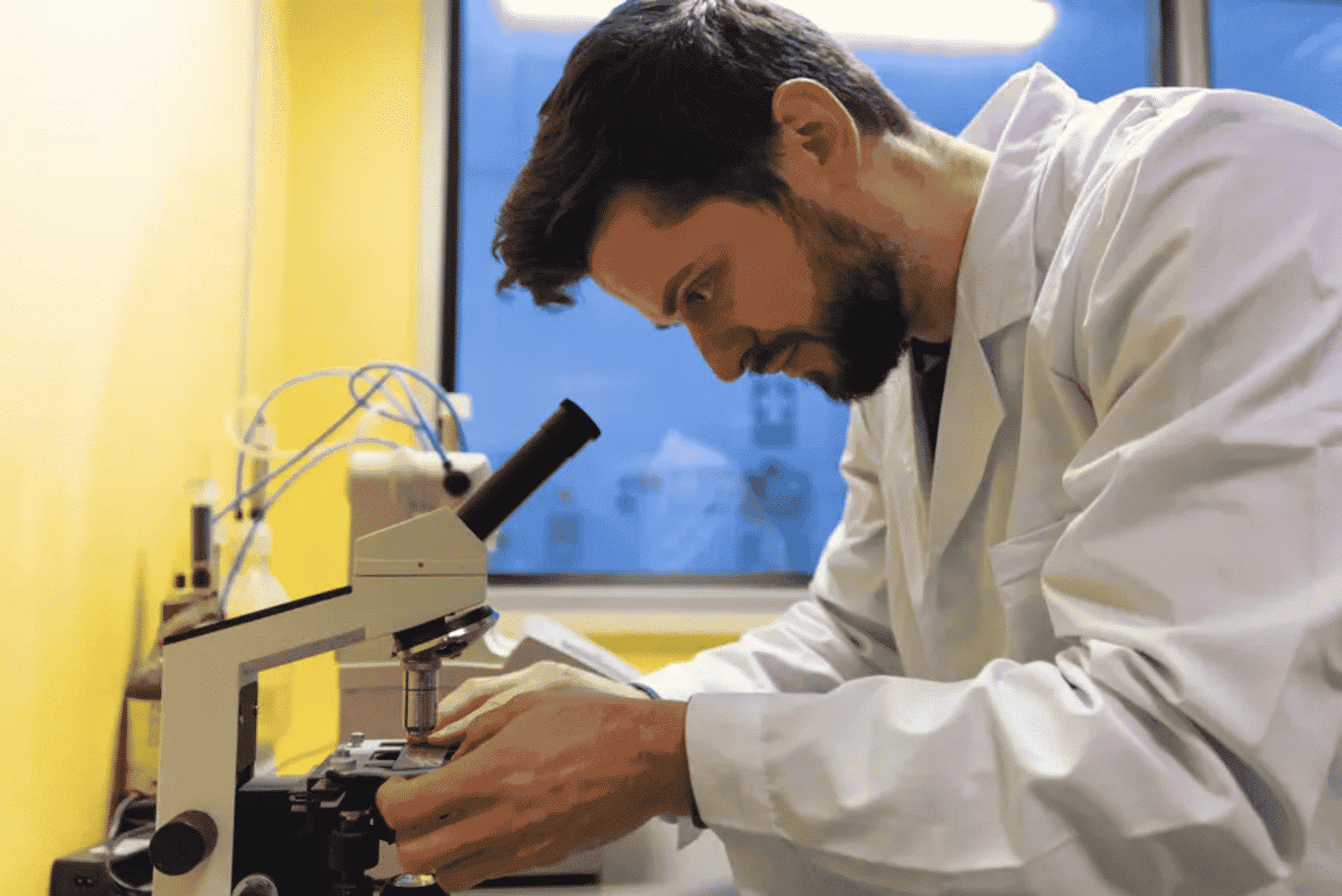

Sustainably farmed seaweed could help meet growing demand for plant-based food and environmentally friendly packaging. Malorny / Getty Images
By Karen Scofield Seal
Demand for plant-based food and nutrition is growing. According to recent retail sales data, grocery sales of plant-based foods in place of animal products grew 29% in the U.S. to $5 billion between 2017 and 2019.
Sustainably farmed seaweed could help meet this need, while also providing compostable, marine-safe packaging. UK-based biotech start-up Oceanium has developed innovative, “green and clean” biorefinery technology to make both these things possible.
With grant funding from Innovate UK and seed investment from Sky Ocean Ventures and Katapult Ocean (the latter two being ocean impact VCs), is focusing on scaling up their high-tech, innovative biorefinery and product development to find out more about the start-up’s history, development and plans for the future. We spoke to Oceanium’s Karen Scofield to find out more about the start-up’s history, development and plans for the future.

How Oceanium’s technology works. Oceanium
How Did Oceanium Come About?
I met my Co-Founder and our CTO, Dr Charlie Bavington, PhD in May 2018. My background is in partnership and business development, brand-building and marketing. I’ve worked with (RED), Comic Relief and also run my own successful e-commerce business. After completing a postgraduate certificate at the University of Cambridge Institute for Sustainable Leadership, I conducted extensive research on what type of business I could start that would have the most impact and that’s when I discovered seaweed. Ever since then, I have been passionate about sharing its environmental and societal benefits.
Charlie is a brilliant biochemist who has been developing and commercializing marine-based products for the past 20 years. He was the Founder of the successful biotech company, GlycoMar, and has extensive experience developing marine-based products for commercial use. He currently has five patents to his name and is about to file two more for Oceanium bio-packaging. I shared my vision of making packaging from seaweed with Charlie, who confirmed that this was possible but that there was also an opportunity to capitalize on all the food and nutritional ingredients in seaweed too. Charlie and I co-founded Oceanium in June 2018, and have been moving forward swiftly ever since.
How Is Oceanium Contributing to the Low-Carbon Economy?
Oceanium’s impact mission is to enable the emerging sustainable seaweed farming industry by creating demand for farmed seaweed. Sustainable seaweed farming helps to mitigate climate change via carbon and nitrogen absorption. According to the World Bank, seaweed can absorb 47kg of carbon per wet tonne which equates to approximately one tonne of carbon per hectare annually.

Seaweed farming in Oban, Scotland. Oceanium
Of course, some of that carbon will go back into the system. So we are conducting life-cycle analysis on our process and products so we may improve efficiencies but also to measure and report our impact as we grow and go to market. We are liaising with organizations like Seaweed for Europe and the UN Global Compact Seaweed Manifesto to help quantify this carbon absorption and to ensure this exciting new industry grows in a sustainable and managed fashion.
Seaweed farms protect the seabed from commercial fishing and other harmful practices and create a marine sanctuary for sea life. Seaweed farming also has other immensely positive environmental impacts, as it does not require cleared land, freshwater, insecticide or fertilizer. Our seaweed-based materials can replace resource-intensive food and feedstocks which often contribute to deforestation. In addition, seaweed farms encourage responsible coastal management and create marine protected areas for sealife.
What About the Economic and Societal Impact of Your Business?
Seaweed as a food source will help ensure food security. It’s incredibly nutritious and full of vitamins, minerals and protein-essential micronutrients, particularly antioxidants.
The world will require 50–70% more food by 2050 and with increasing drought conditions and decreasing soil quality, seaweed provides a sustainable solution to this challenge.
Seaweed can help close the “protein gap” in the more immediate term: Europe currently imports 70% of its protein but Oceanium plans to process and sell its outputs on a regional basis to reduce transport miles of our products. We aim to contribute towards economic development and job creation in coastal communities by supporting small-scale farmers when purchasing seaweed, promoting best practice farming techniques and helping enable the nascent sustainable seaweed farming industry in the UK, EU and in the developing world.

A pilot trial of Oceanium’s proprietary biorefinery process. Oceanium
What Has Been the Impact of COVID-19 on Oceanium?
Oceanium has continued to move forward despite the pandemic. At a start-up there is always plenty to do and we’ve been working on developing relationships across the value chain, researching and analyzing new opportunities, and conducting research. Interestingly, our nutraceutical product, Fucoidan, has proven to be an effective COVID-19 antiviral in vitro and we are watching this research closely.
What’s Next on the Horizon?
Oceanium continues to progress with research and development for our food ingredients (protein and fiber), nutraceuticals (Fucoidan, Beta glucan) and circular life-cycle bio packaging materials (film and board).
We have also begun work on two new Innovate UK grants. The first is focused on further development of the bio-packaging materials; the second looks at maximizing efficiencies across all aspects of the production process, from the seaweed farm to final product development.

Oceanium research associate Andre Rastica at work. Oceanium
We are scaling our innovative biorefinery process – we processed approximately 8 tonnes of wet seaweed in December and have plans for 45 tonnes in 2021.
Meanwhile, we are continuing to build relationships with seaweed farmers in the UK, EU and North America. We are also fundraising for further R&D, patent applications and undergoing regulatory processes as we prepare to launch products in 2021. We are well on our way to “Kelp the World”!
What Resources or Assistance Do You Need to Achieve Your Ambitions That You Currently Don’t Have? Is There Any Assistance That the Uplink Community Could Offer?
Definitely. Our nutraceutical products will go to market next year and we are looking for commercial or business development experts in the nutrition and cosmetics space. Importantly, we are also fundraising so always keen to connect with funders and investors!
Reposted with permission from World Economic Forum.
- Seaweed Could Revolutionize How We Power Our Devices ...
- Underwater Vertical Seaweed Farm Restores Our Oceans While ...
- How Seaweed Can Feed the World - EcoWatch
- Vitamin K: A Little-Known But Noteworthy Nutrient - EcoWatch
- Could Seaweed Snacks Help Restore the Oceans? - EcoWatch

 233k
233k  41k
41k  Subscribe
Subscribe 